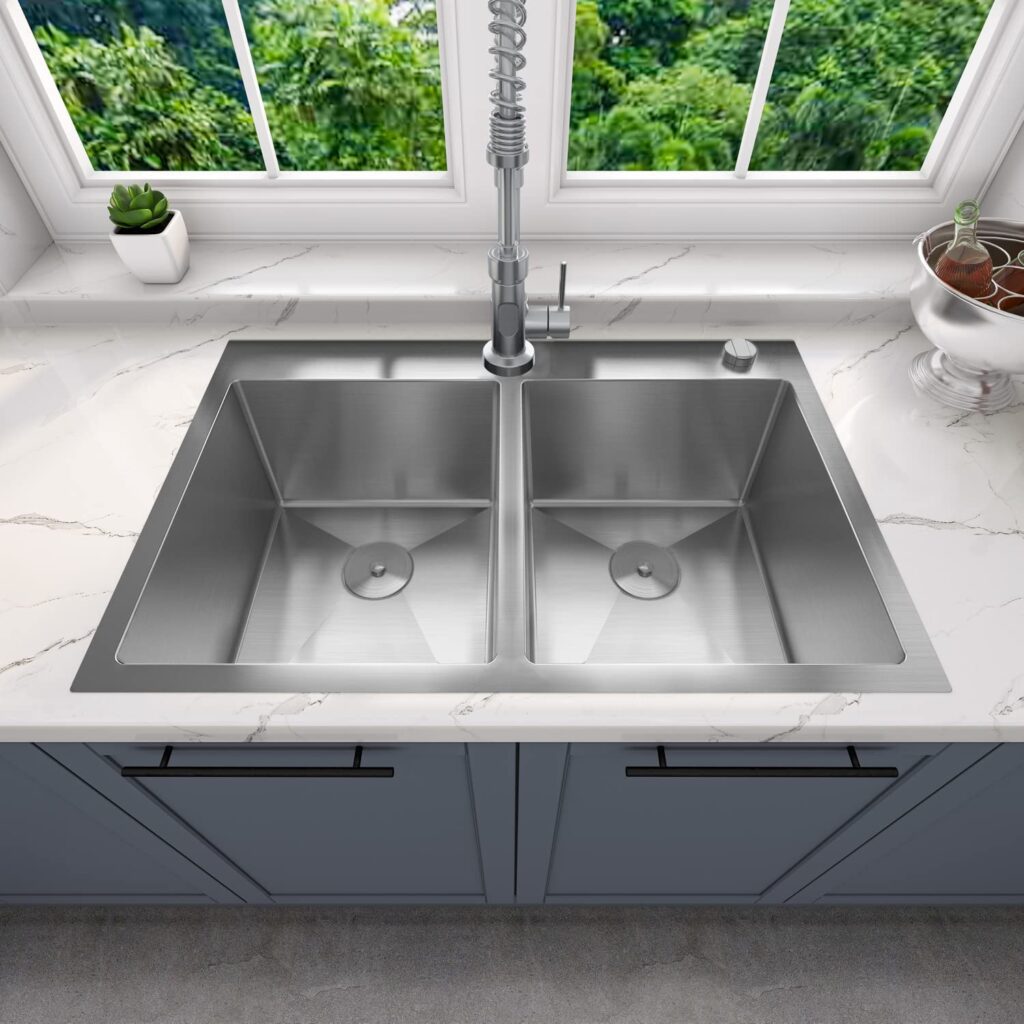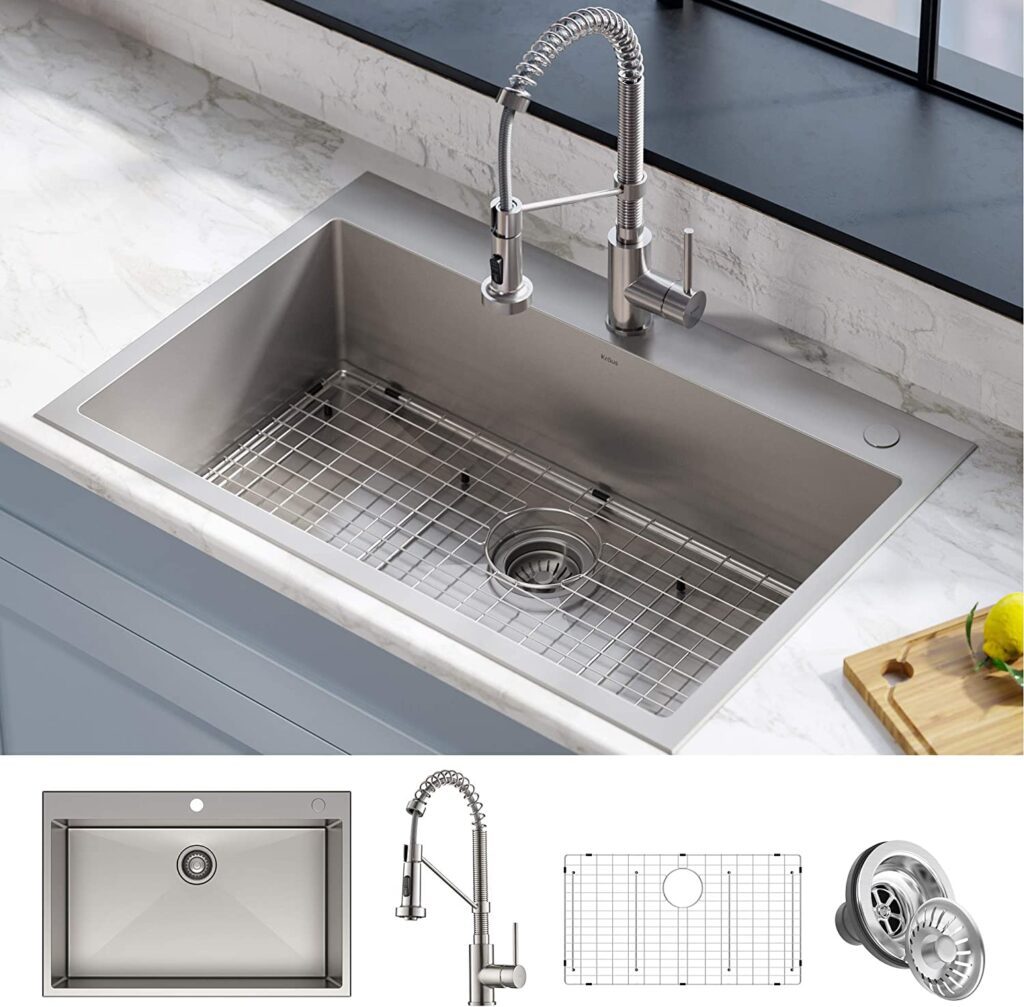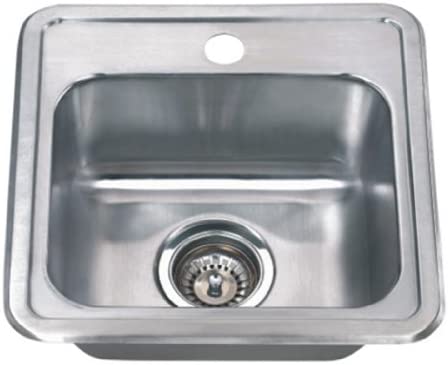Can you pour boiling water down the sink?
Would you like to know whether it is safe to pour boiling water down kitchen sink? If yes, then you are at the right place because this guide has all the information you need to know regarding this topic. A kitchen sink is a basic part of any kitchen or house that serves a number of operations. This is from washing dishes, preparing food as well as waste disposal. This topic has raised a number of questions over the years and many people don’t know whether it is right or not. Let’s dive into this question so that you are able to get the right answer.
Yes, it is safe to pour boiling water down kitchen sink. Boiling water is very effective to remove accumulated grease, fats and other substances that clog the sink and even the drainage system. However, it is also important to consider the material of your sink as we as drainage pipes because boiling water can damage them if they are unable withstand high heat.
Related Article: How to keep brushed nickel faucets from spotting?

Effects of Boiling Water on Sink Materials
Stainless steel sinks
The effects of boiling water on stainless steel sinks can be considered safe. Stainless steel is a durable material that is resistant to high temperatures which makes it a popular sink in many kitchens. However, it is worth considering the effect of boiled water on the stainless-steel kitchen to enhance its life span.
The following are the effects of boiled water on a stainless-steel sink:
- Thermal Shock – Stainless steel is durable and can withstand high temperatures such as the one from boiling water. However, sudden high-temperature changes can lead to thermal shock. Thermal shock has an effect on the sink because it may end up warping and even distorting the sink shape. To prevent this case, you will have to gradually introduce boiled water into the sink rather than pouring hot water directly.
- Discoloration – Stainless steel is usually very resistant to discoloration, but when exposed to boiled water for long it may experience discoloration. The good thing is that this discoloration can be removed using a mild abrasive solution and even stainless-steel cleaners. This will restore the sink to its original appearance.
- Drainage system – Boiled water plays a crucial role in removing minor clogs from the drainage systems, especially if you use PVC or plastic pipes. Besides this, the excessive temperature can also make the pipes soften or warp. This can lead the pipes to leak or get damaged. For this reason, it’s good to confirm with a professional plumber whether your pipes are appropriate to use this process to unclog your system.
- Rubber gaskets and seals – Most kitchen sinks are equipped with a rubber gasket or a seal, mainly located at the drain or faucet areas. Using boiled water for a long can damage this component, which may make them become loose or brittle. This may make them lose their functionality and effectiveness. For this reason, it will be great to check once in a while if you use boiled water.
Porcelain sinks
Porcelain sinks are popular and highly loved because of their elegant and glossy appearance. They are a bit delicate when you compare them to other sink materials and hence require maximum care when using boiled water.
The following are the effects of boiled water in porcelain:
- Thermal shock- Porcelain sinks are very sensitive to thermal shock when exposed to sudden changes in extreme temperatures. Pouring boiled water into the sink can make the porcelain material expand rapidly which may lead to cracks and sometimes even breakages. For this reason, it is important to avoid exposing the sinks to high temperatures.
- Discoloration – Boiled water has the ability to cause temporary or permanent discoloration to the sink surface. The sink color may end up fading or changing its color to yellow. To add on top of this, if the boiled water has minerals, it may end up forming stains on the surface.
- Enamel damage – Most porcelain sinks are constructed with an enamel coating which offers a protective layer and also enhances its appearance. Using boiled water can easily damage the coating with time. This is because the high temperatures can cause the enamel to crack or chip. This in in the end damages the sink. Due to this, it is important to avoid using boiled water.
- Sealant and Adhesives – Some porcelains are equipped with sealant or adhesive materials. These materials are very sensitive to high temperatures because they are weakened. This causes the structure construction of the sink to be affected thereby leading to leaks and even loosening the sink mounting.
Composite sinks
Composite sinks are a type of sinks that are constructed from a combination of resin and natural stone. If you like you can also call them composite granite or quartz sinks. These sinks are well-designed to offer durability and also aesthetic appeal.
Here are the effects of boiled water on composite sinks:
- Heat resistant – Composite sinks have the ability to withstand high temperatures such as boiled water. The material construction of natural stone and resin makes them resistant to heat, hence are not affected wither thermal shock like other sink materials. However, it does not mean that you expose the sink to sudden temperature changes.
- Color discoloration – When exposed to boiled water for a long time they may end up fading slightly. Following the manufactures instructions will help you maintain the color and appearance of the sink.
- Resin – Composite sinks heavily rely on resin to hold their natural properties. Boiled water is very safe to the sink but excess heat can adversely affect the resin life span. To retain the sink’s strength, it is good to avoid putting hot pots as well as pan directly onto the surface of the sink. You can use a trivet and even heat-resistant pads to protect the sink.

Related Article: Can you replace a kitchen sink without replacing the countertop?
Effects of Boiling Water on Sink Pipes and Drains
Using boiled water can have both positive and negative effects on both pipes and drains depending on the material used for the drainage system,
Below are some of the effects:
PVC Pipes
- They can soften and even warp due to boiling water which leads to deformation.
- The boiled water can loosen the joints of the pipes with time.
- Boiled water can trigger chemicals or substances within the pipes.
Metal Pipes
- Boiled water can lead to the expansion of metal pipes such as copper, steel and more.
- Boiled water can also cause or accelerate corrosion processes.
- Excess heat from boiled water can lead to soldered joints weakening, hence leading to leaks or joint failure.
Drain seals and Gaskets
- Boiled water can lead to leaks and breakdowns.
- Boiled water may deteriorate the condition of seals and gaskets with time.

Safety Measure for Using Boiling Water in the Kitchen Sink
Since boiled water is at very high temperatures, it is very important to carry out the operations safely to prevent damage and also harms to yourself.
Below are ways of carrying out a safe operation:
- Gradual temperature changes: It is very important to avoid sudden temperature changes, this will prevent the sink from thermal shock.
- Sink material: Knowing the sink material is important since there are some materials that have the ability to withstand extreme temperatures while others can’t. Here you can refer to the manufactures manual to confirm.
- Clogs: Boiled water has a great effect on clogged drainage systems. Just like the sink, it is important to know the type of pipe in your drainage system. This will help in knowing whether boiled water will damage the pipes or not.
- Regular maintenance: Ensure to clean and maintain your sink frequently because if you do, you will not need hot water to help you clean and clear your drainage system.
- Professional consultation – If you are not sure how to carry out operations, you can consult a professional to help you solve your kitchen sink issues.
Frequently Asked Questions
- Can you pour hot water down the kitchen drain?
Yes, you can pour hot water down the kitchen drain. Hot water has a number of benefits like loosening grease and even removing clogs. However, due to its high temperature, it is good to carry out the process cautiously to prevent damage to sink material and drainage pipes that cant, withstand high temperatures.
- How long does it take for boiling water to unclog a drain?
The time taken to unclog the drain highly relies on the nature of the clog. Boiled water can be effective on minor clogs that can be due to grease and a small number of debris. The boiled water may not be applicable to complex clogs.
- Will pouring boiling water down a drain unclog it?
Pouring boiled water down a drainage can help unclog minor clogs such as grease and soap scum. The boiled water melts the substances which enables them to flow easily down the drainage. It is also important to know that this process may not be effective on complex clogs.
Related Article: Why is my kitchen sink backing up?
Conclusion
We can conclude by saying that it is safe to pour boiling water down kitchen sink. Before pouring boiled water, you should first check the material of your sink as well as drainage to avoid damaging them. Boiled water has high temperatures which may cause unfavorable materials to warp, crack and even get damaged. Hope this article has been helpful.

